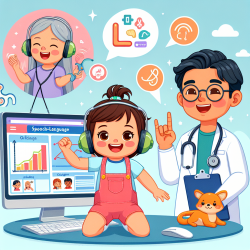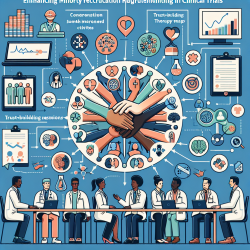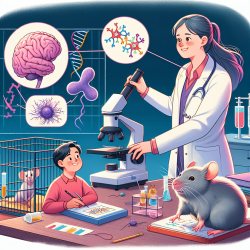Introduction
In the realm of adolescent sports, concussions are an unfortunate reality that can have significant repercussions on a young athlete's life. As a Special Education Director, understanding the nuances of sport-related concussions (SRC) and the latest research can empower you to better support your students and collaborate with healthcare professionals. The recent study, "Plasma Biomarkers of Traumatic Brain Injury in Adolescents With Sport-Related Concussion," published in JAMA Network Open, offers groundbreaking insights into how plasma biomarkers can revolutionize the management of SRC in adolescents.
The Promise of Plasma Biomarkers
Blood-based biomarkers such as glial fibrillary acidic protein (GFAP), ubiquitin c-terminal hydrolase-L1 (UCH-L1), neurofilament light (NfL), and total tau (t-tau) have emerged as promising tools for diagnosing and managing SRC. These biomarkers provide objective data that can complement traditional clinical assessments, offering a more comprehensive understanding of the injury.
Key Findings and Implications
The study conducted a prospective cohort analysis of 849 adolescents involved in high-risk sports across Canada. It revealed significant differences in plasma biomarker levels between uninjured adolescents and those with SRC, highlighting the potential of these biomarkers in understanding concussion pathology.
- GFAP and UCH-L1: Elevated levels of these biomarkers were observed post-SRC, indicating their potential as early indicators of concussion.
- Sex and Age Differences: The study found variations in biomarker levels based on sex and age, emphasizing the need for tailored approaches in managing adolescent concussions.
- Clinical Utility: While biomarkers showed sensitivity to SRC, their role in enhancing recovery monitoring remains to be fully explored.
Practical Applications for Practitioners
As a practitioner, integrating these findings into your approach can enhance your ability to support students with SRC. Here are some ways to apply this knowledge:
- Advocate for Comprehensive Assessments: Encourage the use of plasma biomarkers alongside traditional assessments to provide a more holistic view of the injury.
- Promote Awareness: Educate parents, coaches, and students about the importance of early detection and management of concussions.
- Collaborate with Healthcare Professionals: Work closely with medical teams to ensure that students receive the best possible care, leveraging the latest research in biomarker applications.
Encouraging Further Research
While this study provides valuable insights, it also opens the door for further research. Understanding the long-term implications of biomarker levels and their role in recovery can significantly impact adolescent health outcomes. As a leader in special education, you can play a crucial role in advocating for continued research and innovation in this field.
To read the original research paper, please follow this link: Plasma Biomarkers of Traumatic Brain Injury in Adolescents With Sport-Related Concussion.










